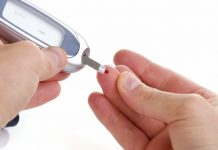The cause of juvenile diabetes is unknown. This is a life long illness, but it is manageable with appropriate care and diet.
This illness is also referred to as type I diabetes. The first step in managing this type I diabetes successfully is maintaining the overall health.
Juvenile diabetes is an autoimmune disease that causes the failure of the body to fight against infections naturally.
When a person has type I diabetes, pancreas fails to produce the hormone called insulin, which helps glucose to enter into body’s cells and maintains glucose level. Because of this, the glucose will remain in the blood and damages internal organs, blood vessels, and nervous system.
Does juvenile diabetes cause other health conditions?
Yes. In some cases juvenile diabetes leads to other health conditions such as heart attack, stroke, skin disorders, high blood pressure, and kidney failure. Diabetes also leads to blindness and can cause nerve damage.
Contracting gum diseases and other associated mouth problems are also caused by juvenile diabetes. Poor blood flow is associated with juvenile diabetes, which further leads to many foot problems.
If juvenile diabetes is not treated properly, the condition may become serious leading to amputation of the foot.
Maintaining a healthy lifestyle, following a healthy diet, regular exercise, and proper hygiene helps to prevent the onset of other health illnesses associated with diabetes. If the juvenile diabetes is untreated correctly, it may lead to coma also.
Is it possible to control blood sugar levels?
Type I diabetes or juvenile diabetes can be controlled by insulin intake.
Take insulin to keep the blood sugar level near to normal levels. People with type I diabetes should take short-acting insulin before each meal as per the instructions given by health care provider.
Carbohydrate counting helps to adjust the amount of insulin before each meal. In case, if the amount of carbohydrate intake is same at each meal, then there will be no fluctuation in blood sugar levels.
To avoid rising the blood sugar level during night, intermediate acting insulin is needed.
However, your primary physician will determine the appropriate amount of insulin to take before each meal and also at bedtime. You can also learn counting the carbohydrates in each meal and adjusting the insulin dosage accordingly.
Monitor your blood sugar level three times a day to make sure that your blood sugar level is not too high. If your blood sugar level is high, take an extra dose of short-acting insulin to make it normal. However, confirm with your doctor about the extra dosage of insulin before you take.
Sometimes, the blood sugar level will go down in people with insulin intake and causes hypoglycemia.
At the same time, you should watch your diet to control your blood sugar levels and portion size of your meal to maintain healthy weight.
Low-fat, low-sugar, and low-salt diet will be helpful for those people who have juvenile diabetes. This diet helps to control blood sugar, blood pressure, as well as cholesterol levels.
Don’t be panic if you are diagnosed with juvenile diabetes. You can have normal life and healthy lifestyle if you control diabetes by following the instructions given by your health care provider.













